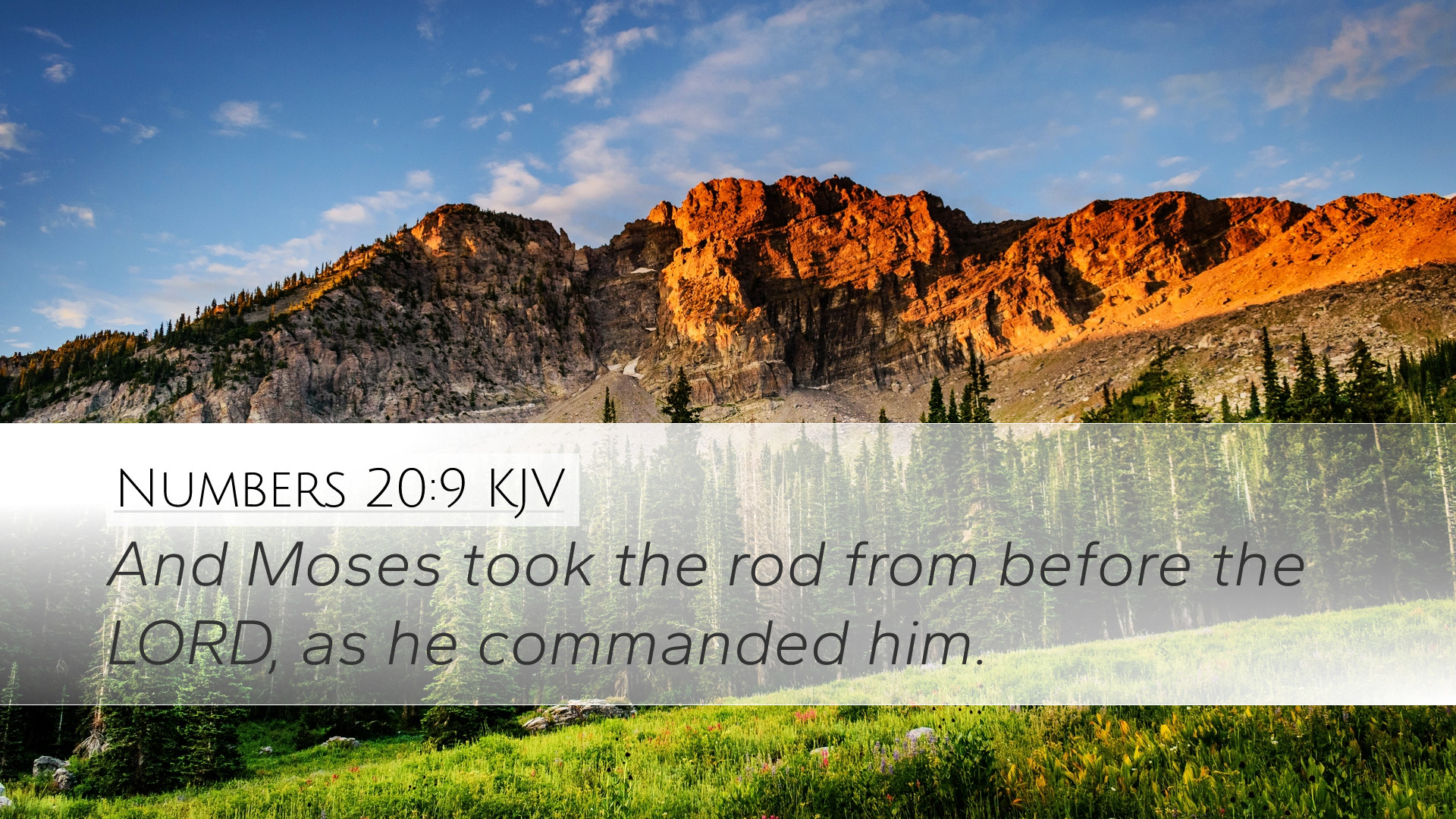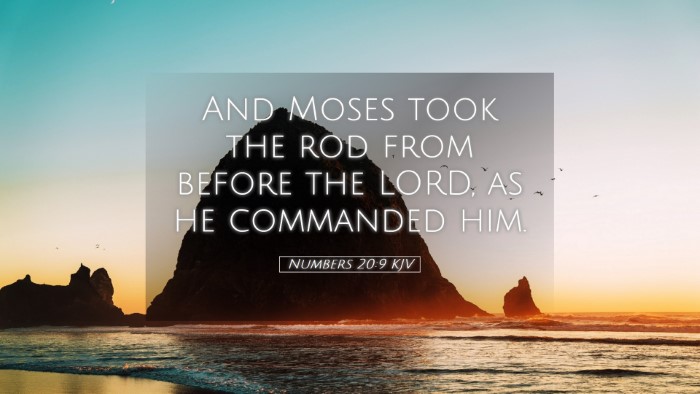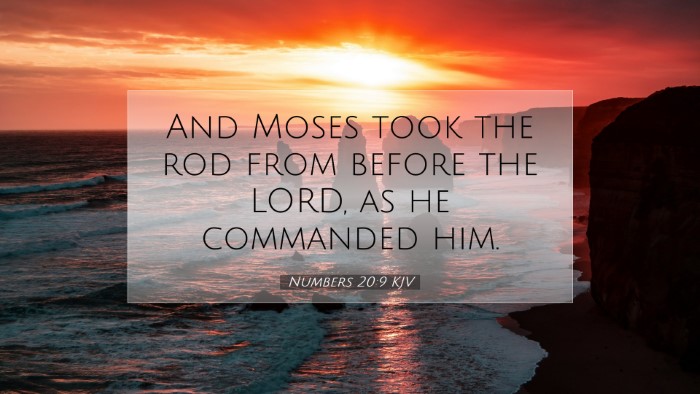Bible Commentary on Numbers 20:9
In Numbers 20:9, we encounter a pivotal moment in the narrative of the Israelite journey through the wilderness. The verse states: "So Moses took the rod from before the Lord, as He commanded him." This simple yet profound action encapsulates themes of obedience, leadership, and God's provision.
Contextual Background
The events leading up to this verse occur during a time of crisis. The Israelites, having endured a prolonged period of wandering due to their unbelief, find themselves in need of water once again. The previous chapter illustrates their frequent complains and rebellions against God and His appointed leaders, revealing the human tendencies of doubt and impatience.
The Importance of the Rod
Throughout the Pentateuch, Moses' rod represents God's power and presence. Matthew Henry emphasizes its significance, noting that:
- Instrument of Miracles: Moses' rod had been used to perform signs and wonders in Egypt, including the plagues and parting the Red Sea. This establishes the rod as a symbol of divine authority.
- Tool for Guidance: The rod served as a practical tool in shepherding the people and as a means to execute God's commands.
Moses' Obedience
In taking the rod "as He commanded him," we see Moses' readiness to obey God's instructions. Albert Barnes reflects on this obedience, stating:
"Moses was compliant to the divine command, despite the heavy burden of leadership upon him." This act of obedience not only reflects Moses' faith but serves as an example for contemporary leaders in faith communities.
Leadership in Times of Crisis
Moses' role as a leader during this crisis cannot be understated. Adam Clarke focuses on the gravity of the situation, highlighting:
- Communal Struggles: The Israelites were collectively facing the consequences of their decisions and distrust in God, and Moses was the figure called to intercede on their behalf.
- Tension between Leadership and People: This moment illustrates the delicate balance leaders must maintain between following divine guidance and addressing the tumultuous concerns of their community.
Theological Implications
This verse opens up several key theological reflections, particularly related to obedience and divine authority:
- Obedience as Worship: Observing the reverence with which Moses took the rod underscores that obedience to God's commands is an act of worship.
- God’s Provision: The act of taking the rod illustrates faith in God's provision, even amidst uncertainty and fear.
The Symbolism of the Rod Today
The rod can also be seen as a metaphor for the Word of God, which leads, disciplines, and protects believers. Just as Moses was instructed to take the rod, modern believers are called to take up the Scriptures, guided by the Spirit, to navigate their spiritual journeys.
Practical Applications for Today
For pastors, theologians, and students of scripture, there are several lessons to be drawn from Numbers 20:9:
- Encouragement in Leadership: Leaders can draw strength from Moses’ example. When faced with the pressures of guiding others, they must remember the importance of following God’s commands.
- Faith in Action: Like Moses, believers are called to take up their 'rod' – be it the Scriptures, prayer, or other means of grace – and act upon God's commands, particularly in crises.
- Community Focus: Leaders should remain attuned to the needs and struggles of their communities, offering guidance that reflects both truth and love, much like Moses did for Israel.
Conclusion
Numbers 20:9 serves as a powerful reminder of obedience and the need for divinely informed leadership. As modern-day believers reflect upon this passage, they are encouraged to take the 'rod' of God's word, to lead, guide, and serve others according to His commands.


